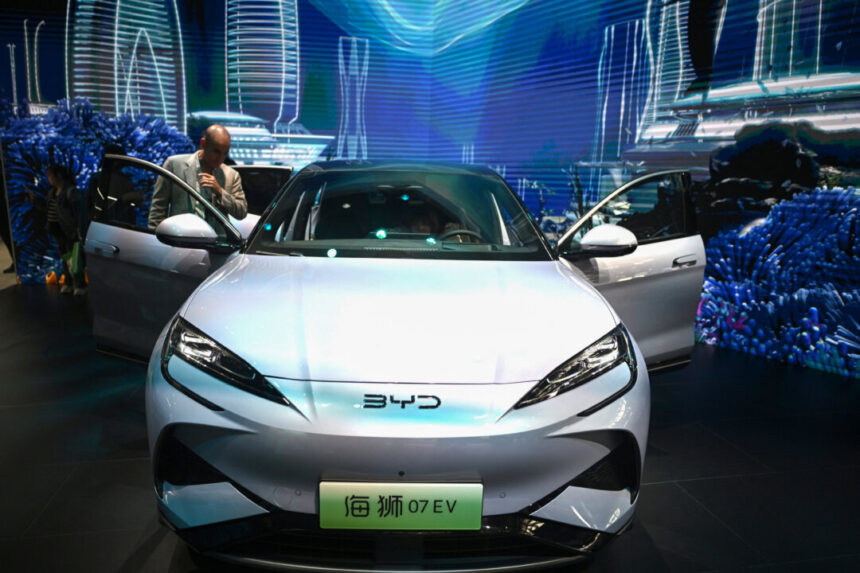The imposition of tariffs by Ottawa on Chinese-made electric vehicles (EVs) has been described as a temporary relief for Canada’s EV industry, according to testimony given at a recent meeting of the Commons trade committee about a month after the tariffs were announced in late August.
Elizabeth Kwan, a senior researcher with the Canadian Labour Congress, emphasized that this relief is short-lived and serves as an opportunity for Canadian manufacturers in the EV supply chain to fulfill their commitments and utilize public investments to kickstart production. This statement was made on Sept. 16 during her appearance before the Standing Committee on International Trade, which had initiated a study on protecting Canadian manufacturing sectors against Chinese imports and measures.
Kwan highlighted the need for urgent protective measures to prevent damage to Canada’s Zero-Emission Vehicle (ZEV) industry due to Chinese dumping practices, which could jeopardize the significant support of nearly $53 billion for the EV sector in Canada. This support was detailed in a report by the Parliamentary Budget Officer, outlining substantial investments and government support for the EV supply chain.
The report indicated that out of the $52.2 billion in investments, federal support accounted for up to $31.4 billion (60 percent), with provincial government support totaling $21.1 billion (40 percent) from Ontario and Quebec.
Prime Minister Justin Trudeau announced on Aug. 26 that Canada would impose a 100 percent tariff on Chinese-made EVs effective Oct. 1, along with a 25 percent tariff on steel and aluminum products starting Oct. 15. This decision was made to address China’s unfair advantage in these sectors, aligning Canada with similar measures taken by the United States.
During a cabinet retreat in Halifax, Trudeau emphasized the necessity of these measures to counter China’s trade practices, which have been deemed unfair in the automotive industry.
The implementation of these tariffs brings Canada in line with the United States, which has already imposed tariffs on Chinese imports and plans to increase them further in the future. President Joe Biden also ordered tariffs on Chinese EVs to be raised from 25 percent to 100 percent, while the European Commission announced tariffs on Chinese-made EVs based on the manufacturer.
‘Domestic Products’
Marty Warren, the national director of the United Steelworkers Union, raised concerns about the threat posed by Chinese manufacturers to Canadian workers in various industries, including steel, aluminum, mining, and auto manufacturing.
Warren stressed the long-standing issues of Chinese excess capacity and unfair trade practices affecting the steel and aluminum sectors, leading to job losses and the decline of domestic industries. He urged the government to prioritize the use of Canadian-made steel and aluminum in public infrastructure projects.
Herman, a fellow of the Canadian Global Affairs Institute, echoed Warren’s sentiments by emphasizing the need to address China’s aggressive trade actions strategically. He suggested amending Section 53 of Canada’s Customs Tariff Act to include national security considerations in response to China’s trade practices.
“We have the right to take action under WTO GATT provisions when Canada’s national security interests are at stake,” Herman stated.







